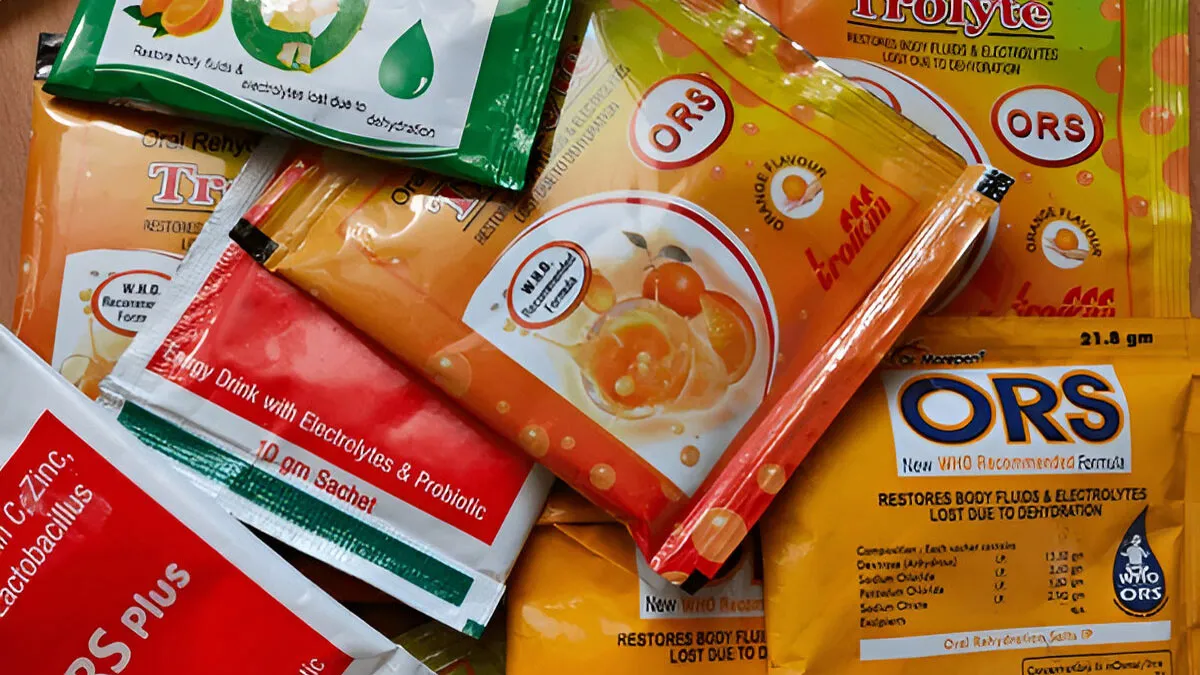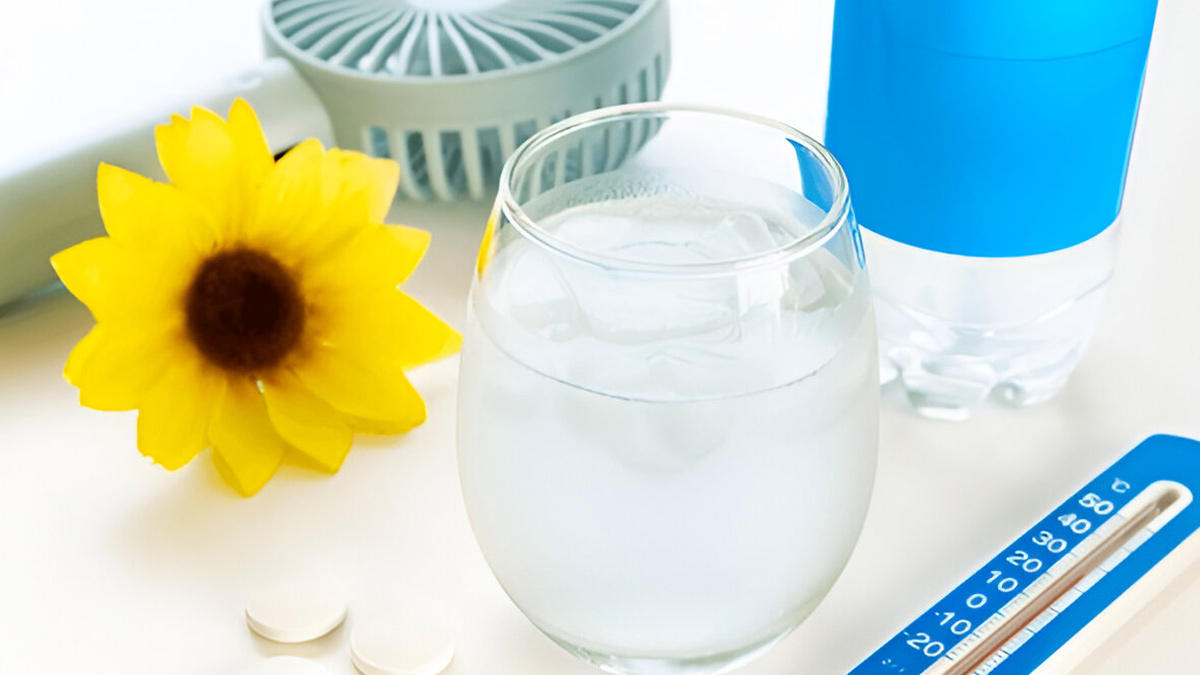
Dehydration is a common health problem all through the year. It occurs when your body loses more water and electrolytes than it takes in. Common causes include insufficient fluid intake, excessive fluid loss from sweating, vomiting, diarrhoea, and increased urination due to conditions like diabetes or certain medications. While in the summer, excessive sweating and heat stroke are what cause dehydration, in winters, low fluid intake is one of the most common reasons for dehydration. But no matter the cause, ORS, also called oral rehydration solution, is a recommended treatment for dehydration. But what is ORS? And why is moderation important when it comes to its consumption? Here’s everything a doctor wants you to know.
Table of Content:-
Also Read: Boosting Hydration: How Hydration Changes Skin, Mood, And Digestion
What Exactly Is ORS?

“ORS (Oral Rehydration Solution) is a water‑based solution used for rehydration and replenishment of salts in cases of dehydration,” Dr Paritosh Baghel, Senior Consultant-Internal Medicine, SL Raheja Hospital, Mahim - A Fortis Associate, tells the OnlyMyHealth team. “It restores fluids and electrolytes lost due to diarrhoea and vomiting.”
Dr Baghel adds that the solution also contains carbohydrates and salts mixed in water in balanced proportions, ensuring adequate hydration and electrolyte replacement.
When Should You Have ORS, And When To Avoid?
ORS is recommended for the treatment or prevention of dehydration caused by diarrhoea or vomiting. It is commercially available in powder form, which can be reconstituted with clean water.
The good news is it can also be prepared at home using sugar or glucose and salt dissolved in safe drinking water.
ORS is not for everyone. Dr Baghel advises individuals with kidney disorders, diabetes, or heart failure to avoid its use. Additionally, those who have had restricted fluid intake should also refrain from drinking ORS. Such individuals should use ORS only under proper medical guidance.
Side Effects Of Consuming Too Much ORS

According to the doctor, excessive consumption of ORS can lead to fluid overload, particularly in patients with heart or kidney disease. In diabetics, the glucose/sugar content of ORS may cause uncontrolled blood sugar levels.
Additionally, overuse can result in salt toxicity (hypernatraemia), a condition characterised by high sodium levels in the blood, typically defined as above 145 mEq/L, and is usually caused by a lack of free water in the body due to excessive water loss or insufficient water intake. According to StatPearls Publishing, the condition is prevalent in infants or older populations with neurological or physical impairment.
Also Read: Why Staying In Air Conditioning All Day Can Dry Out Your Skin And Sinuses
How To Safely Consume ORS?
“ORS should be taken for rehydration when dehydration has occurred or is likely to occur. Intake should match the amount of ongoing fluid loss due to diarrhoea or vomiting. Once water loss has stopped, ORS intake should be reduced,” explains Dr Baghel.
He adds, “Thirst can be used as a guide for fluid intake; in general, about 2 litres of water per day is considered sufficient for most individuals. If puffiness of the face or swelling of the legs develops, it could indicate fluid overload, and ORS should be discontinued immediately with medical help sought.”
Conclusion
ORS is a great way to hydrate yourself, especially when suffering from diarrhoea and vomiting associated with dehydration. However, just like anything else in the world, moderation is key. Excessive consumption of ORS can lead to complications, especially in people with kidney disease and diabetes. It is crucial to consult a doctor if you have pre-existing illnesses.
Also watch this video
How we keep this article up to date:
We work with experts and keep a close eye on the latest in health and wellness. Whenever there is a new research or helpful information, we update our articles with accurate and useful advice.
Current Version
Sep 20, 2025 10:57 IST
Published By : Tenzin Chodon